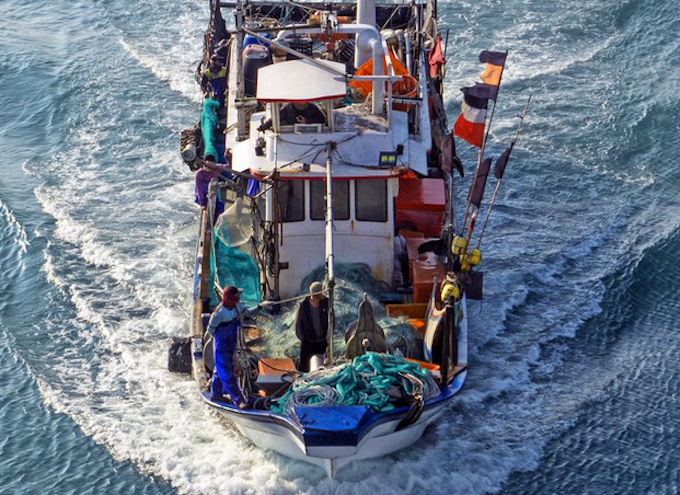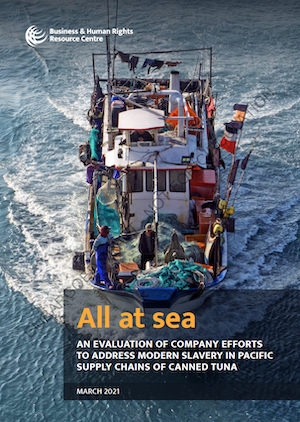
A new report has found that tuna fishing companies in the Pacific are doing little to stop slavery on their boats.
The canned tuna industry is rife with allegations of modern slavery in its Pacific supply chains, with little protection for workers from forced labour.
The Business and Human Rights Resource Centre report, All At Sea: Modern slavery in Pacific supply chains of canned tuna, surveyed dozens of the world’s largest canned tuna brands.
While more than four in five of them have public commitments on workers’ human rights, this doesn’t translate into efforts to end slavery in their supply chains.
The covid-19 pandemic has also heightened the risk for workers of experiencing modern slavery.
New Zealand and other countries have been urged by the centre to legislate against products made using forced labour.
“Too many Pacific tuna fishermen that put food on our tables face abuse and confinement every day,” said Phil Bloomer, the executive director of the Business and Human Rights Resource Centre.
Failing to provide duty of care
“Put simply, the brands who put the cans on their shelves are failing to provide adequate duty of care to these workers who furnish their products.”
According to Bloomer, when the centre first approached these brands two years ago, many had made paper promises to improve their approach to human rights.
“Yet, two years on, the laggard companies have done next to nothing.

“This is not inevitable. A handful of companies – Tesco, Thai Union and Woolworths (Australia) – have shown it is both commercially viable and a moral imperative to emancipate workers caught in modern slavery.”
Only six companies of the original 35 surveyed by the centre have revised their human rights due diligence processes over the last two years: Ahold Delhaize, Coles, Conga Foods, Kaufland, REWE Group and Woolworths.
Bloomer said other brands must catch up and take urgent action to protect workers.
“Investors should also note that the laggards not only run major reputation risk, but also imminent legal risk as new laws in 2021 will leave their negligence exposed to legal challenge.”
This article is republished under a community partnership agreement with RNZ.











































